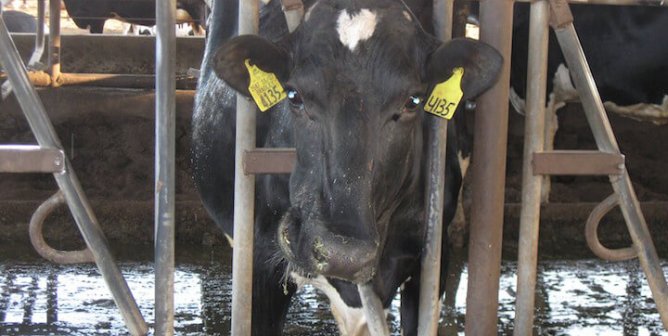Just because you’re renting doesn’t mean you can’t have an animal companion. Finding a rental home that suits you and is animal-friendly can be difficult, so here are some tips to help get you started.
Resources for Finding Your New Home
Most apartment-search websites offer a “pet-friendly” filter, which typically refers to dogs and cats. If you have a different kind of animal companion, like a rabbit or guinea pig, searching for “pet-friendly” apartments is a good place to start, but be sure to ask potential property managers directly whether your particular animal companion will be allowed.
Animal-Specific Search Engine Options
ApartmentAdvisor offers search results with a filter that narrows your search down to options based on your animal companion, located under the “pets” category after searching a location.
To access the “pet-friendly” filters, search the location you are looking for and then click “more” on filter options.
ForRent specializes in budget-friendly options with “pet-friendly” filter options.
Hotpads has easy-access “pet-friendly” filters and also offers e-mail alerts every time an apartment that features your specific list of needs goes on the market.
This search option finds animal-friendly housing, and it also helps find veterinary care and “pet” supply stores in the area.
The Rentable search engine has “Dogs-OK” and “Cats-OK” pre-selected for your search. Just type in your ideal location and start browsing.
RentLingo has the same basic “pet-friendly” features and budget-matching search options but also has a page that helps you build your animal companion’s “résumé”. Creating a résumé for your animal, highlighting their veterinary history and notable characteristics is a great addition to a rental application that demonstrates you are responsible as both a guardian and as a potential tenant.
Zillow offers search results with filters that narrow your search down to options based on your animal companion’s size, located under the “more” category after searching a location. Some listings that use this feature specify the amount of any “pet” deposits or rental fees based on your animal’s weight.
Navigating Size and Species Restrictions
The biggest downside to renting a home is that you don’t get to make the rules—at least not all of them. Property owners and managers are at liberty to prohibit animals based on size and species. These choices, however, typically come down to insurance fears over animals who are not traditionally deemed “apartment-friendly.” The good news is that exceptions sometimes can be made on a case-by-case basis. If you are polite, persistent, and honest (don’t try to hide your animals!) they may make an exception in your animal companion’s favor.
Renter’s Insurance
Many property managers require a renter’s insurance policy regardless of whether the renter has animal companions. Since issues with obtaining insurance are often the reason why property managers set weight and species restrictions, coming prepared with your own renter’s insurance policy that includes a pet liability clause can help open doors.
Animal Interview
Offer to bring your animal in for an “interview,” and get letters of recommendation. There is no better way to show that you are a responsible animal guardian than to demonstrate it firsthand (obtain permission before showing up with your animal, of course). Recommendations can go a long way, too: Reach out to a veterinarian, a previous house sitter, or even a friend who can attest that your animal companion will be a welcome addition and that you are a trustworthy and responsible guardian.
Be Your Animal’s Advocate
While accommodating the property manager’s wishes is sometimes necessary, there are some things that you just have to put your foot down on and say “No way!” to. One example of a particularly cruel request would be for the leasing company to require your cat to be declawed. Cats’ claws are vital to their physical and mental well-being. Declawing has been equated to amputating a human’s finger at the last joint, and many cats have suffered nerve damage, balance issues, and other behavioral changes after undergoing the surgery. Instead of entertaining the idea of declawing, cat guardians should trim their cats’ nails regularly and make sure they have one or more scratching posts available. With a scratching post, cats are able to shed their outer claw sheath and stretch. They are also less likely to scratch any furniture or woodwork once they are redirected to the post. Make sure any leasing agent understands the excruciating pain and torment that they are asking tenants to put their cats through when they require declawing.
Before Applying to Rent, Create a Companion Animal Résumé
Your animal companion doesn’t need a LinkedIn page quite yet, but a “résumé” and even references can help persuade hesitant property managers to give you and your pal a chance. Including a résumé with your rental application shows that you are a responsible, proactive guardian, which can help reassure stakeholders that you will take good care of their property, too. You can use an online template to build the résumé or create it yourself. Be sure to include the following information:
- A photo of your animal companion
- Their vaccination history
- Proof of spaying or neutering
- Their size and weight
- Their daily exercise routine (since animals who receive plenty of exercise, playtime, and mental stimulation are less likely to engage in unwelcome boredom-related behaviors such as destructive chewing or barking).
- Training certifications or background information
- Any fun facts or special skills
Before Adopting, Plan Ahead
If you currently rent and are thinking about adopting an animal companion, it is important to consider all of the added expenses and time commitment that you will need to make in order to ensure high-quality care and a happy animal. Your lease may end in 12 months, but a dog or cat may live up to 15 or 20 years. Are you ready to go through the process of finding animal-friendly housing every time you move? Here are some points to consider before adopting:
- Be prepared for expenses. Many rentals require a “pet” deposit or monthly “pet” rent. And wherever you live, all animals need routine and emergency veterinary care, high-quality food, toys, beds, leashes, and more—all costs that quickly add up.
- Small animals may seem like a better fit for a small space, but they are still a big commitment. Remember, there is no such thing as a “starter pet.”
- All companion animals need exercise and attention daily, regardless of size and species. Locking a dog in a small apartment—or worse, in a crate—and forcing them to “hold it” all day is cruel. Leaving your dog home alone every day for more than four hours can cause them to become depressed, withdrawn, or even aggressive. If you can’t come home during the day to walk and play with your dog, enlist a trusted caretaker to do so or consider volunteering at your local shelter instead of adopting.
- Leaving a family member behind when you move is not an option. Dogs and cats are often surrendered to shelters when people move—a heartbreaking and confusing experience for the animal. If you aren’t prepared to take your animal with you wherever life takes you, please don’t adopt one.
- If you know that a move is in your future, think about the effect on your animal companion. Can you move in a day? Will you need a hotel, and if so, will it welcome your animal? Will someone be able to watch your animal while you direct the movers?
If this information was helpful to you, it may also help a friend. Share this page on Facebook or Twitter to help others find a great place to live with their animal family members.






